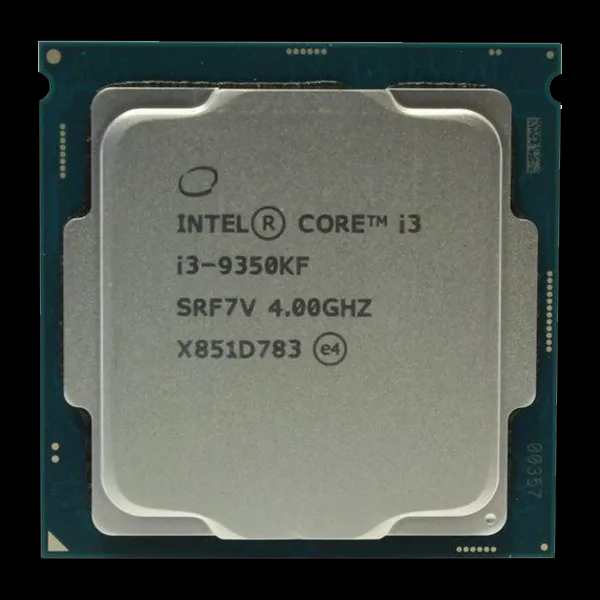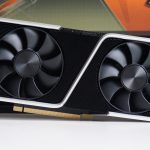Overclocking the Intel Core i3-9350KF, a quad-core processor with a base clock of 4.00 GHz, can unleash additional performance that’s particularly beneficial for gaming, content creation, and intensive computing tasks. This guide dives into the essentials of safely overclocking the i3-9350KF, including understanding the risks, preparing your system, fine-tuning for optimal performance, and monitoring for stability and thermal efficiency. By following these steps, you can maximize the potential of your i3-9350KF processor beyond its factory settings.
Preparing Your System for Overclocking
Ensuring Adequate Cooling
Before attempting to overclock the i3-9350KF, ensure your cooling solution is capable of handling increased thermal output. High-quality air coolers or liquid cooling systems are recommended to maintain optimal temperatures under load. Overclocking generates additional heat, and efficient cooling is crucial to prevent thermal throttling or damage.
Selecting the Right Motherboard and Power Supply
A stable and reliable power supply unit (PSU) and a motherboard that supports overclocking are essential. Ensure your motherboard’s BIOS offers advanced control over CPU settings, voltages, and frequencies. A PSU with a higher wattage rating than your system’s base requirements will ensure stable power delivery during overclocking.

Understanding the Basics of Overclocking
Adjusting the Multiplier and Core Voltage
Overclocking the i3-9350KF involves increasing the CPU multiplier in the BIOS, effectively raising the clock speed beyond the default 4.00 GHz. Incremental adjustments to the core voltage may also be necessary to maintain stability at higher frequencies. Start with small multiplier increases, testing stability at each step.
Finding the Balance Between Performance and Stability
The key to successful overclocking is finding the balance between improved performance and system stability. Pushing the CPU too far can lead to crashes, data corruption, or hardware failure. It’s crucial to proceed cautiously, making gradual adjustments and monitoring system responses.
Tuning for Optimal Performance
Benchmarking and Stress Testing
Use benchmarking and stress-testing tools to evaluate the performance gains and stability of your overclocked i3-9350KF. Programs such as Prime95, Cinebench, or AIDA64 can simulate high-load scenarios that test the limits of your overclocking settings. Monitor temperatures and system stability closely during these tests.
Adjusting for Maximum Efficiency
After finding a stable overclock, fine-tune other settings like CPU Load Line Calibration (LLC) to improve voltage stability under load. Experimenting with memory timings and speeds can also yield further performance benefits. Each adjustment should be followed by thorough testing to ensure overall system stability.
Monitoring and Maintaining Overclocked Systems
Continuous Temperature and Performance Monitoring
Monitoring software is essential for keeping an eye on CPU temperatures and performance in real-time. Tools like HWMonitor, Core Temp, or Intel’s Extreme Tuning Utility (XTU) can provide valuable insights into how your overclocked CPU behaves under different conditions. Maintaining safe temperatures is crucial to the longevity of your CPU.
The Importance of Regular Maintenance
Overclocked systems can accumulate heat and dust more rapidly, potentially impacting performance and longevity. Regular cleaning of cooling systems and case filters, along with periodic thermal paste replacements, can help maintain optimal cooling efficiency. Additionally, staying updated with BIOS updates from your motherboard manufacturer can offer improvements and stability enhancements.
Understanding the Limits and Risks
It’s important to recognize that overclocking involves pushing your CPU beyond its manufacturer-specified limits. This can void warranties and, if not done carefully, lead to permanent damage to the processor or other system components. Always proceed with caution and consider the trade-offs between achieving higher performance and the potential risks involved.
Overclocking the Intel Core i3-9350KF @ 4.00GHz can significantly enhance your system’s performance, making it more capable of handling demanding applications and games. By carefully preparing your system, understanding the fundamentals of overclocking, fine-tuning for optimal performance, and diligently monitoring and maintaining your setup, you can enjoy the benefits of overclocking while minimizing the risks. Remember, successful overclocking is as much about patience and gradual adjustments as it is about the hardware you’re tuning.


